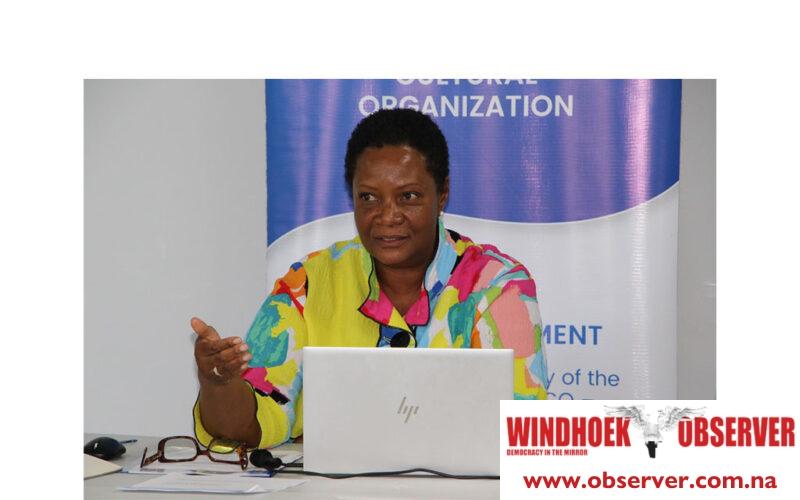Niël Terblanché
A regional workshop hosted in Windhoek has brought together African heritage professionals to explore how digital technologies can transform the preservation and management of World Heritage sites.
The event, which started on Tuesday, is organised by UNESCO in partnership with the Namibian government and supported by the Government of Flanders in Belgium.
Eunice Smith, UNESCO Head of Office and Representative to Namibia, described the workshop as a response to the increasing threats faced by heritage sites across Africa, including climate change, urbanisation and conflict.
“Our repeated periods of prolonged drought followed by devastating floods over the past few years are negatively impacting heritage sites, flora and fauna. Digital technologies offer us unprecedented opportunities to better understand the challenges and devise sustainable solutions,” she said.
Among the tools discussed are drones for high-resolution imagery, geospatial mapping, virtual reality for immersive experiences, artificial intelligence for monitoring site deterioration, and mobile apps to engage local communities.
“This workshop is not only about technology; it is also about people. To build a vibrant network of African experts who can collaborate and lead the digital transformation of heritage management,” she added.
Dr Nicolas Vandeviver, deputy general representative of Flanders in Southern Africa, said the World Heritage Online Map Platform, one of the focal tools of the workshop, embodies a commitment to preservation, awareness, and shared responsibility.
According to Vandeviver, the platform is more than a set of geospatial tools; it is a vehicle for international collaboration and local empowerment.
Namibia’s director for National Heritage and Culture Programmes, Manfred !Gaeb also stressed the importance of digital inclusion in heritage work.
“Numerous heritage sites remain at risk not merely from physical deterioration but also digital absence. If we fail to invest in enhancing the capabilities of our professionals, institutions, and communities, we risk losing memory, knowledge, and future opportunities,” he said.
Namibia is not only co-hosting the workshop but also contributing lessons from its own use of virtual reality and youth-led digital documentation projects at sites such as Twyfelfontein.
!Gaeb said that these initiatives are aligned with Namibia’s Arts, Heritage and Culture policy adopted in 2022, and with the country’s development plans under NDP6.
The workshop forms part of the Strategy for World Heritage in Africa (2022–2029) and supports Flagship Programme 3 of UNESCO’s operational strategy for Priority Africa.
Participants will continue their work later in the week at Twyfelfontein, where they will engage in site-based activities blending traditional knowledge with cutting-edge digital tools.




